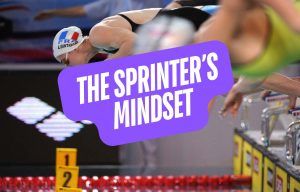For a lot of swimmers the thought of what others think of them and their swimming can feel paralyzing. Here’s what you need to know about how what others think affects your performance in the water (and how to stop caring so much).
Each day that you walk out onto the pool deck it’s you versus you in the water. Yes, there are swimmers in the next lane, but the main battle is between your own ears.
How focused you are. How willing you are to push through the pain. How much more you are willing to do than what is asked of you.
From the time you get in the water on the first day of the season until those final quiet moments behind the blocks, you battle your doubts, wrestle with fluctuating levels of motivation, and brave the uncertainty inherent in trying to be your best.
To make things tougher is when we spend too much energy and focus worrying about what others think.
We cower under the eyes and expectations of others. We worry about embarrassing ourselves. About disappointing others. And as a result we reap a metric ton of anxiety, fear and self-doubt along the way that cripples our confidence and by extension, our swimming.
Here’s how caring what others think is holding you back in the water, and what you can do to battle back.
A quick definition: “Fear of negative evaluation (FNE)”
First defined back in the late 1960s, it’s the worry we have of how others will judge us (and by extension), our swimming. We worry and fret about how others evaluate us, worry about them evaluating us negatively, and come to expect that people will evaluate us in a negative light.
The result? FNE inhibits our effort and preparation in the pool on account of what others may or may not think of us.
Although on the surface we may know that what others think isn’t critical, there is a deeper emotional need to be liked and for security attached to FNE that pulls us in the opposite direction.
Here are some of the things that happen when we care too much about what others think of us in the water:
The more you care about what others think, the less capable you consider yourself.
This is the cruelest irony of this attitude—that the more attention you place on how others view you and your swimming, the less competent you are likely to view yourself.
Researchers have found this relationship between competence and fear of negative evaluation in school children in PE classes.
This probably makes sense to you on an intuitive level: rarely do we sit around and think how positively others view us, rather, it’s the negative stuff we hammer our focus down upon.
We overestimate how harshly other people judge us.
Whenever we screw up, trip up or otherwise embarrass ourselves we feel the unmistakable flush of embarrassment and shame. We feel like our reputation and perception of our ability has been tarnished big-time in the eyes of others, whether it’s our coach, our friends, teammates, and the general swimming community.
But our fears, as they tend to be, are overblown.
In a series of studies those who committed some sort of act of public failure—whether a social blunder, an intellectual screw-up, or “who were described in an embarrassing way”—routinely exaggerated how others viewed the moment. Again, you might have screwed up, but others don’t care or put as much weight on it as you do.
As you can guess, worrying about others sends our own performance crashing.
One study of basketball players found that those who scored higher for giving a baker’s crap about what others think performed significantly worse during high pressure situations compared to their give-no-darns peers. Another study found the same connection between choking and higher levels of FNE in badminton players.
Moral of the studies: The more you care about what others think the more likely you are to choke.
We even worry about looking nervous, too.
To make things worse for swimmers who rate higher in FNE is that we stress about showing the signs and effects of being anxious (trembling, sweating buckets, and blushing) even though we might not be necessarily be physically exhibiting those signs.
In one interesting study researchers took a group of 40+ participants who ranked across the board in terms of levels of FNE and had them sing a children’s song while recording and tracking blood flow to the face, heart rate and respiration song.
Everyone—from those high in FNE to low in FNE–experienced roughly the same physical symptoms, but those with higher FNE perceived that they were experiencing the symptoms of stress at a higher level than they actually were.
The fear of appearing to be anxious made the anxiety more real in their brains, even if the symptoms of anxiety weren’t registering physically.
Chasing the approval and validation of others costs you everything and gives very little in return.
Think about all the thought and energy that goes into getting bent out of shape worrying what someone else thinks. The stress. The anxiety. The self-doubt.
Make no mistake, the totality of this kind of fixation is huge. It’s exhausting, man.
And for what? What are you receiving in return? A platitude? A word of congratulation? A passing moment of well-wishing?
When viewed strictly in terms of cost to benefit, caring what others think runs you a massive deficit.
We lose control over our own performance.
An unhealthy need for the approval of others is misguided as it is counter-productive. By placing an emphasis on trying to impress others we take ourselves out of the question. What we do on a daily basis becomes irrelevant if it doesn’t impress someone else.
Gone is a focus on mastering ourselves and our own performance. Gone is the motivating sense of control we develop by concentrating on doing our best each day in the pool. Gone is the process, the mastery, and the motivation that comes along with it.
Success requires looking stupid.
It’s easy to look at the performances of the top swimmers on the planet—Dressel’s seven golds in Budapest, Phelps’ epic week in Beijing—and use that one shining moment in time as a summary of their whole career.
The thinking goes something like; Because they achieved brightly once they always had it easy.
This isn’t the case. There were serious hiccups along the way for them (for Dressel it was a six month retirement before his first year of university, for Phelps’ breaking his wrist eight months out of Beijing), and there will be hardship for you too. Don’t believe that you are somehow exempt from the failure required to succeed.
The sense of perfectionism that comes along with not wanting to dare appearing silly or too try-hardy in front of your peers means that you never get a chance to see what you are capable of. You never push yourself to the brink. You pull up short on cracking your limits.
The people who love you will be there for you—the ones who base their love on not having looked a little stupid from time to time…well, you can draw your own conclusions on that one.
Doing something exceptional in the water never goes smoothly. You are going to fail. You are going to stumble. You are going to fall butt-first. You are going to experience setbacks, failures, rejections and disappointments.
These are hard enough on their own—but it’s an essential part of the process. We don’t need to exacerbate their difficulty by adding worrying what others think to the mix.
The Takeaway (and the Next Steps)
Where we land on the FNE scale is unique to us (you can try testing yourself out on the Brief Fear of Negative Scale evaluation here). But there’s no doubt that we all experience the negative repercussions that come with it from time to time.
We worry about being judged. We fear disappointing others. We worry about being gossiped or talked poorly about.
And we end up sabotaging our own performance while also avoiding opportunities to maximize our own talents and abilities.
If left unchecked and unfettered, caring what others think can have a serious impact on our life and our swimming.
While getting rid of it completely isn’t going to happen, there are things you can do to help:
Surround yourself with people with similar goals.
Our environment plays a massive role in our development and mindset. It’s easier to do the “right thing” when the right thing is normal. Seek out the elite-minded swimmers on your team and group.
Australian Olympian Kieren Perkins summed up this sense of having to swim against the current when it comes to having exceptional goals. Elite goals are not common and require you to go against the grain and against the behaviors and opinions and viewpoints of others at times, “That might mean doing something different to the rest of your peer group.”
Take note of the moments where you held back.
Being more aware of the times where you aren’t giving your best on account of possibly looking silly or stupid is key.
A lot of swimmers will back off on something because of FNE but mislabel their reasons for doing so. “I could have worked harder today, but I just didn’t feel like it,” is a common one.
Open up your training log and note the times where your effort got sidetracked by the expectations and judgements of others. Being aware of when it’s happening is a big first step in rationalizing those thoughts the next time they pop up.
Build a better process.
Giving yourself something else to focus on beside how others are perceiving you can help you stay focused on your own performances.
In competition this can mean using a pre-race routine and performance cues. In training this can include having daily practice goals to give you personal targets and things to focus on.
Increase your attentional control.
Attentional control is pretty much just what it sounds like—your ability to decide and control where your focus and attention is going.
While it sounds simple we both know from experience that trying to box out what others think and our anxieties is really hard! Usually, trying to force yourself to be less anxious usually just ends up making you more anxious and nervous.
Attentional control, developed through activities like mindfulness training or meditation (while powerful and proven, does take time to really kick in) or reframing stress as excitement, gives you power to redirect your focus and thoughts.
 Mental training for swimmers finally made simple.
Mental training for swimmers finally made simple.
Tired of choking on race day? Want to finally conquer your mindset so that you can give your PB’s the beating they deserve?
Conquer the Pool: The Swimmer’s Ultimate Guide to a High Performance Mindset might just be for you. Used and trusted by some of the top clubs and swimmers on the planet.

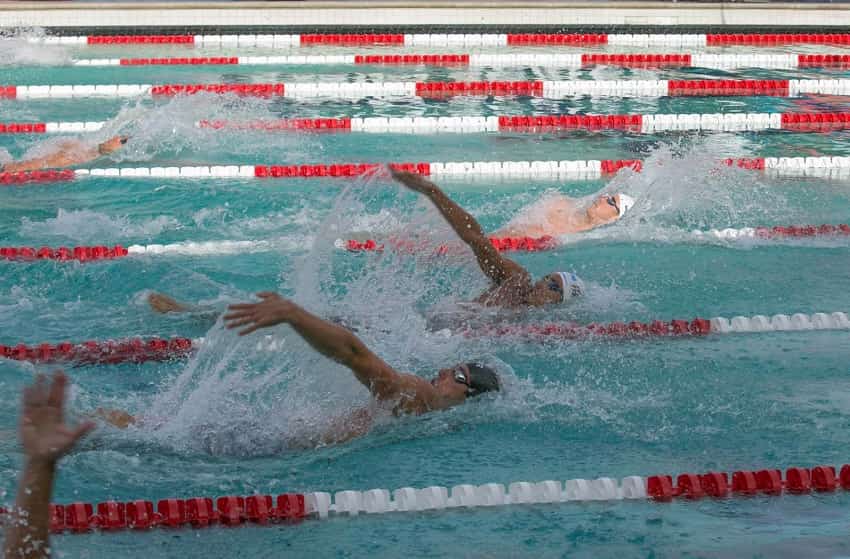
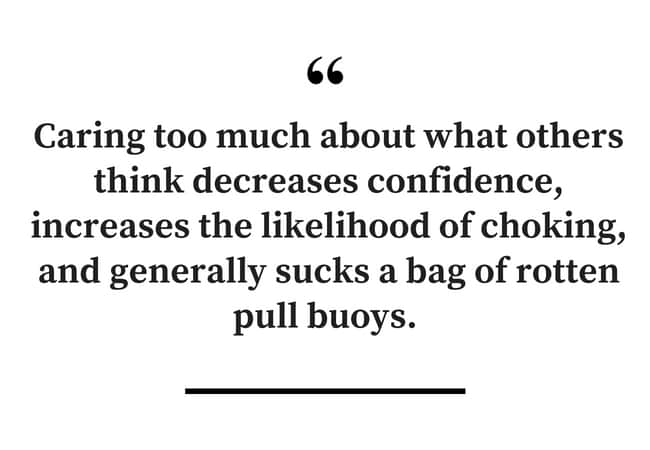
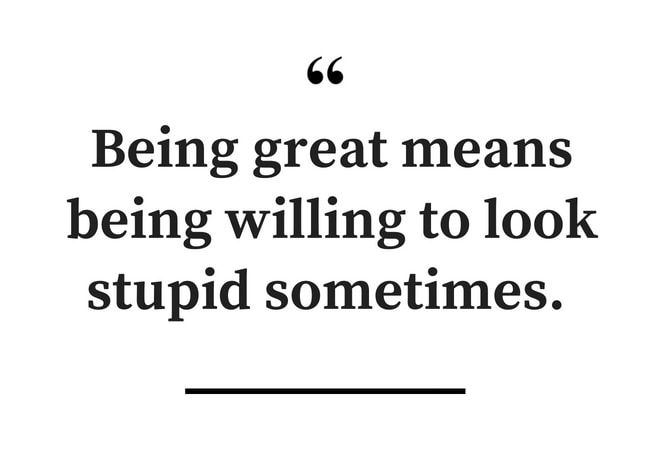
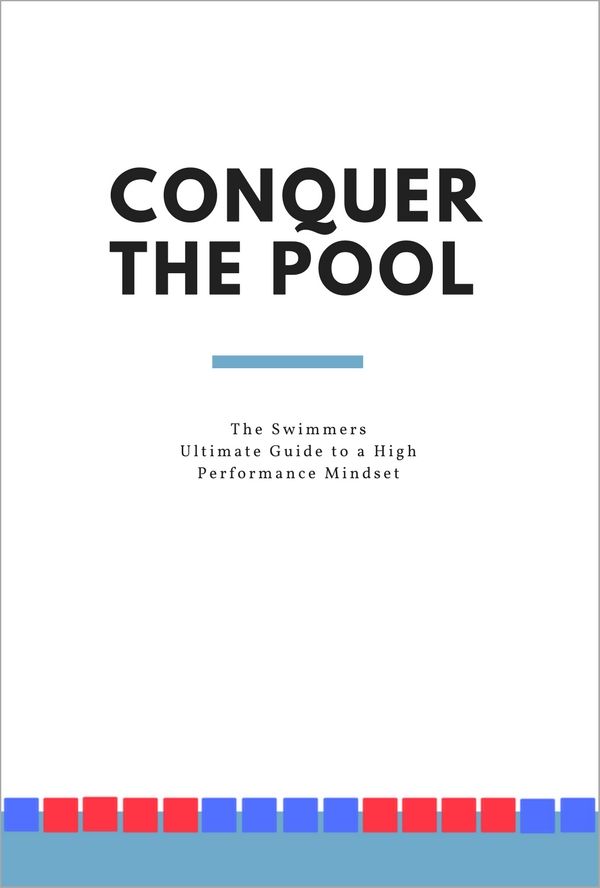 Mental training for swimmers finally made simple.
Mental training for swimmers finally made simple.



